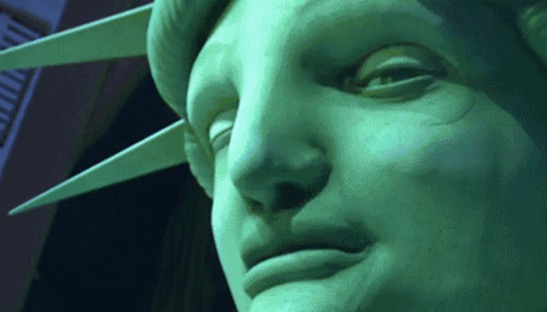No invisible hand guides the hearts of the people.
Liberalism’s Visible Hands

Vermeule's Adam Smith is a straw man.
The “invisible hand,” understood as the processes by which people’s actions, undirected from the top down, indirectly realize growing aggregates of private individual goods, is presented by Adrian Vermeule as central to the “comprehensive metaphysical system” he calls “liberalism.” In Vermeule’s view, liberalism’s consistent failure to achieve its promise facilitates “liberal fideism”: an insistence that theological, political, and economic invisible hands will yield aggregates of such goods if we just let them.
No doubt, some liberals think this way. Vermeule, however, dramatically overestimates the invisible hand’s significance in the thought of key minds conventionally regarded as major progenitors of liberalism.
Consider the Scottish Enlightenment thinker most associated with the invisible hand concept. In his Wealth of Nations, Adam Smith employs the “invisible hand” as a metaphor for the unintended positive social effects of individuals pursuing their self-interest in the marketplace. Combined with Smith’s “natural liberty” rhetoric and his animus against “the man of system,” “enamored…of his own ideal plan of government,” the metaphor has led many to regard Smith as the primary expounder of economic laissez-faire.
Smith certainly maintained that markets tended to produce better economic results than the mercantilist systems of eighteenth-century Europe. But Smith wasn’t an advocate of laissez-faire. There are no “perfectly competitive markets,” to use Vermeule’s words, in Smith’s thinking, and he never thought there would be.
What’s more, there were also major limits to Smith’s confidence that various goods can be realized indirectly.
Smith argued, for example, that free trade (the economic invisible hand writ globally) leads to the unintentional magnification of wealth across national boundaries. Yet Smith also deemed it utopian to expect that “the freedom of trade should ever be entirely restored in Great Britain,” not least because it was against “the private interests of many individuals.”
Nor did Smith think that free trade’s extension would bring global peace in its unintended wake. Though it might ameliorate national rivalries stimulated by mercantilism, Smith held that the wealth realized through free trade would allow more governments to possess larger militaries and absorb the costs of warfare for longer periods. Nations, he said, would be able to support “fleets and armies in distant countries” and “maintain foreign wars there.” Those aren’t the sentiments of a universal-peace-and-love-via-free-trade libertarian.
We should also recall that one reason why Smith wrote the Wealth of Nations was his desire to provide legislators with information revealed by the nascent social sciences. They needed this knowledge, Smith believed, in order to make decisions in the interests of the whole. Here Smith’s Theory of Moral Sentiments attributed great responsibility to “the man of public spirit”: he who wishes “to promote, by every means in his power, the welfare of the whole society of his fellow citizens” but who lacks the hubris of the man of system.
Smith in fact insisted that government had a responsibility to realize any number of common goods. As detailed in Book V of The Wealth of Nations, these ranged from national defense to justice and infrastructure. The state, Smith even insisted, should forbid “scandal and indecency” in the sphere of private entertainment. Plainly many goods, Smith contended, wouldn’t be sufficiently actualized or protected by invisible hands.
Likewise, Smith didn’t respond to problems which he associated with commercial society by holding that markets would eventually resolve these challenges. He gave, for instance, governments a role in education to help alleviate the stultifying effects of the ever-extending division of labor upon those who specialized in boring, repetitive tasks.
All this evidence of Smith’s conviction that certain common goods must be intended and chosen by the state contradicts Vermeule’s presentation of liberalism as radically dependent upon invisible hands. But it also points to a wider problem—the persistent tendency of recent conservative critics of liberal order to construct their critiques on less-than-full accounts of the thought of key liberal thinkers like Smith and John Locke.
Of course, there is much to criticize about liberalism. It’s also the job of theory to clarify how ideas relate to each other. Critiquing and theorizing, however, can degenerate into ideological posturing when facts are disregarded or the complexity of particular thinkers is ignored or downplayed in order to preserve a narrative’s coherence. Whether they have fallen into that trap is a question which many critics of liberalism should ask themselves.
The American Mind presents a range of perspectives. Views are writers’ own and do not necessarily represent those of The Claremont Institute.
The American Mind is a publication of the Claremont Institute, a non-profit 501(c)(3) organization, dedicated to restoring the principles of the American Founding to their rightful, preeminent authority in our national life. Interested in supporting our work? Gifts to the Claremont Institute are tax-deductible.
Disillusioned liberalism can pull us from the hellbroth of clashing absolutists.
Life under liberalism is servile, though there is no slavery.
A different leap of faith could be far more dangerous.
Is liberalism still entitled to give itself a hand?





